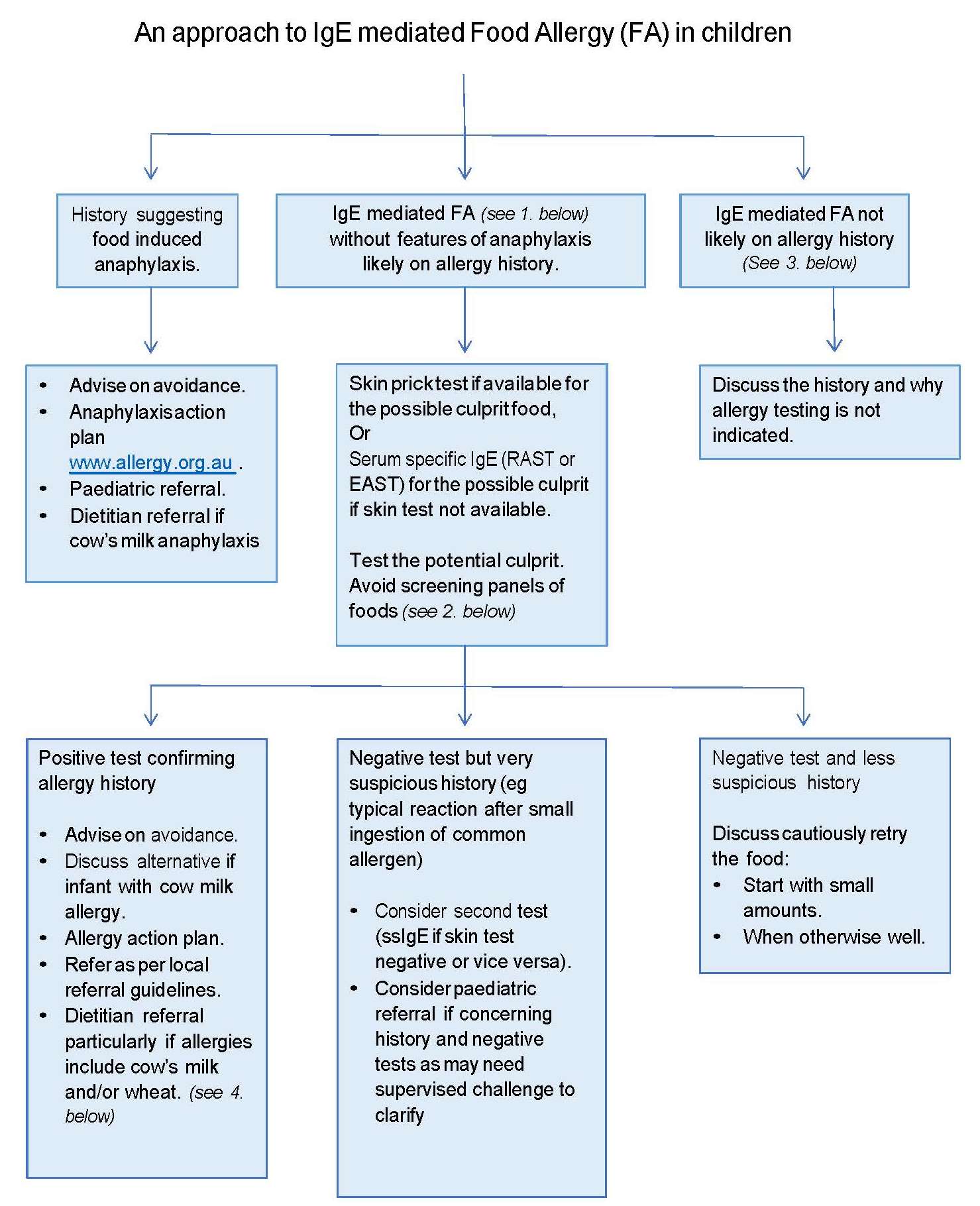A red itchy rash or raised area of skin weals. A severe allergic reaction can develop just seconds after someone comes into contact with the allergen.
This is called anaphylactic shock.

What is a non severe allergic reaction. Sneezing and an itchy runny or blocked nose allergic rhinitis itchy red watering eyes conjunctivitis. Allergic reactions to the COVID-19 vaccine would generally fall into one of two categories. It can affect the whole body and if its not treated quickly enough it could be fatal.
For other people an allergic food reaction can be frightening and even life-threatening. Local reactions eg redness are usually the least severe and most frequent. Food allergy symptoms usually develop within a few minutes to two hours after eating the offending food.
Non-severe reactions that occur within four hours of getting vaccinated are known as immediate allergic reactions. Allergists recognize four types of allergic reactions. If you experience any of these symptoms and think its.
What happens during an allergic reaction. It can occur within seconds or minutes of exposure to something youre allergic to such as peanuts or bee stings. Severe allergic reactions usually to foods insect stings and medications can cause the following symptoms.
Non-severe allergic reactions include hives swelling or wheezing within 4hours of the vaccine he says. Common symptoms of an allergic reaction include. Allergic reactions are exaggerated sensitivities hypersensitive reactions that occur when your immune system responds abnormally to common substances such as pollen dust and certain foods.
Anaphylaxis is a severe potentially life-threatening allergic reaction. Severe allergic reactions require treatment with epinephrine or an EpiPen. An allergic reaction occurs when your immune system has a hypersensitive reaction to substances called allergens.
The most common food allergy signs and symptoms include. Signs are problems that someone notices. Anaphylaxis is a rapidly developing and serious allergic reaction that can affect multiple body systems at the same time.
Type I or anaphylactic reactions type II or cytotoxic reactions type III or immunocomplex reactions and type IV or cell-mediated reactions. Although allergic reactions can be a nuisance and hamper your normal activities most are mild. For some people an allergic reaction to a particular food may be uncomfortable but not severe.
Anaphylaxis is often triggered by substances to which people have an allergy that are injected or ingested and thereby gain access into the bloodstream. Symptoms are what a person is feeling. If you are allergic to these substances most commonly pollen dust food and animal fur your body will trigger an allergic reaction upon contact in the form of swallowing inhaling or touching the allergen.
An immediate allergic reaction means a reaction within 4 hours of getting vaccinated including symptoms such as hives swelling or wheezing respiratory distress. Anaphylaxis causes your immune system to release a flood of chemicals that can cause you to go into shock your blood pressure drops suddenly and your airways narrow blocking breathing. An anaphylactic reaction occurs when the bodys immune system overreacts to an antigen which it recognizes as an invader or foreign substance.
When you eat breathe in or touch something youre allergic to your immune system produces histamines to. Severe anaphylactic reactions can be fatal. Systemic reactions eg fever occur less frequently than local reactions and severe allergic reactions eg anaphylaxis are the least frequent reactions.
Most anaphylactic reactions have signs or symptoms in two or more areas of the body. If you arent able to get an mRNA COVID-19 vaccine you may still be able to get a different type of COVID-19 vaccine. Non-severe immediate reactions and severe reactions per the CDC.
A non-severe allergic reaction could take up to four hours to occur. What is a severe allergic reaction. The bodys white blood cells produce substances called antibodies as a reaction to that antigen.
Very occasionally a severe reaction called anaphylaxis can occur. Severe adverse reactions are rare. The antibodies circulate in the bloodstream and attach themselves to certain cells in the body.
Anaphylaxis occurs when an allergic swelling gets so extreme that it causes your throat to close preventing air from getting through. But if you do have a more severe allergic reaction to the COVID vaccine the CDC says your symptoms will usually arise within 15 minutes after your shot.
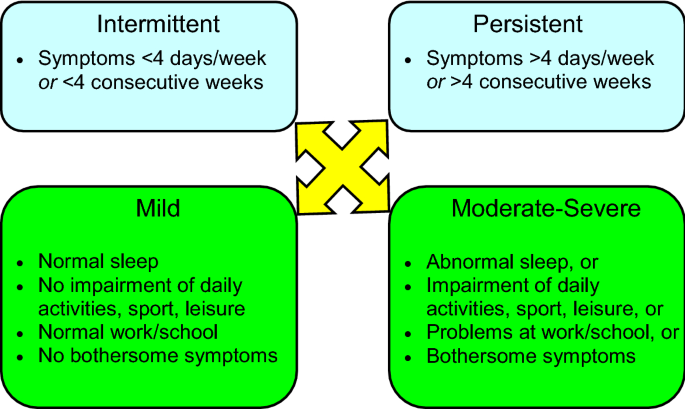
Allergic Rhinitis Allergy Asthma Clinical Immunology Full Text

Can We Identify Patients At Risk Of Life Threatening Allergic Reactions To Food Turner 2016 Allergy Wiley Online Library

What Is An Allergy Sensitizer And How Does A Chemical Become One

What To Do During An Allergic Reaction Health Plus
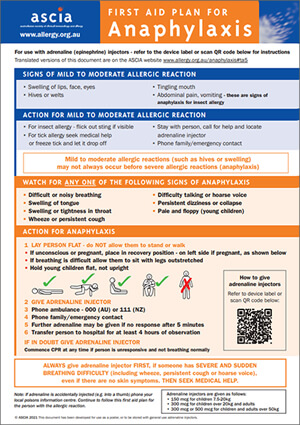
First Aid For Anaphylaxis Australasian Society Of Clinical Immunology And Allergy Ascia

Treating An Allergic Reaction In School Spare Pens In Schools
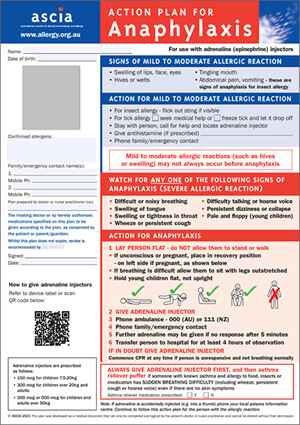
Ascia Action Plan Anaphylaxis Australasian Society Of Clinical Immunology And Allergy Ascia
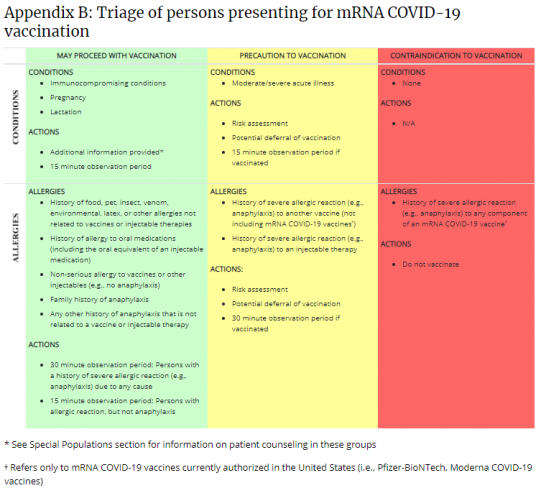
Allergic Reactions Related To Covid 19 Vaccinations In Allergic Patients American Academy Of Otolaryngology Head And Neck Surgery Aao Hns

Cardiovascular Changes During Peanut Induced Allergic Reactions In Human Subjects Journal Of Allergy And Clinical Immunology
